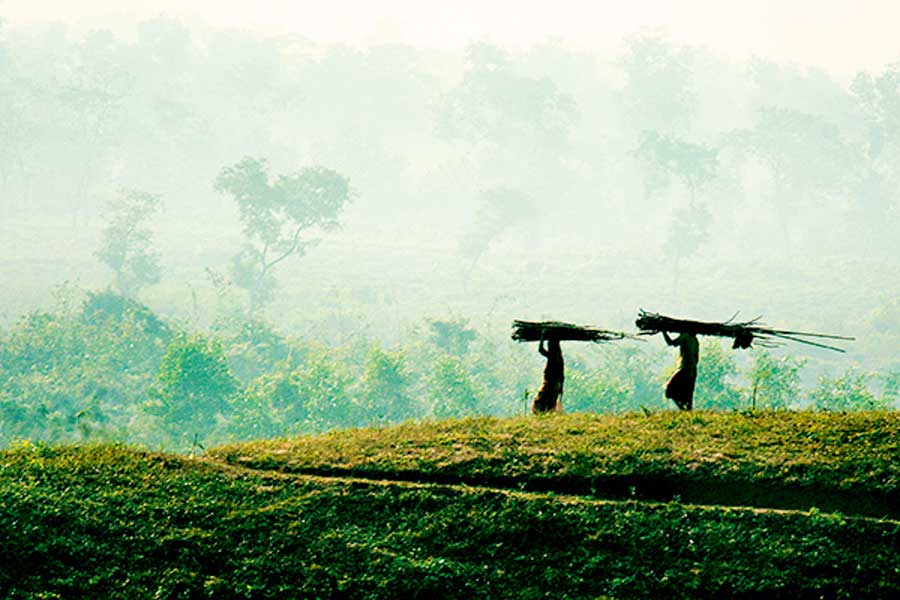
Published :
Updated :

A Kolkata-based popular Bangla TV channel has lately started telecasting a short video film based on Bangladesh. The film is a projection of the country, its achievements in different areas, with special focus on Dhaka, the country's capital. Presumably a promotional video, it especially highlights the positive aspects of Bangladesh. Capital Dhaka appears in the video clip as a smartly built modern city. The city's drab look and the many urban scourges aside, certain areas in Dhaka still remind a lot of its senior citizens of the blissful character of the town, later turned into a metropolis. The 400-year-old Dhaka has never had green hills like those in the port city of Chattogram. But four vibrant rivers once encircled the city, having a sparse population, and numerous canals. The Dhaka residents in the past comprised mostly the locals. It is a section of these people who kept Dhaka's economic wheel running.
Almost like Kolkata, Dhaka, too, passed through a turbulent history. Many an event having Sub-continental implications, like freedom struggles against the British rule, took place in Kolkata. Dhaka didn't lag behind. It stood witness to the countdown to the start of a series of struggles and movements that led to the Bangladesh independence. The first of the start of these struggles took place in the form of the 1952 Language Movement. Passing through dozens of mass movements, the final struggle for Bangladesh independence began in the 1970s. It led to the declaration of Bangladesh independence by Bangabandhu Sheikh Mujibur Rahman on March 7 at the then Dhaka Race Course Ground.
Immediately after the start of the genocide let loose on the Dhaka people by the then Pakistan occupation army on March 25, 1971, Bangladesh virtually became an independent country. However, challenging times stood ahead that involved displaced people. A large number of them took refuge in the neighbouring India. Moreover, recognition to the independent Bangladesh remained a test for the provisional government. Thanks to the existing world political situation, the emerging Bangladesh had to fight through many adversities. Bangladesh received recognition of a great number of the UN member-countries including major powers. In the post-independence period, political analysts observed that it was the barbaric genocide which sparked the start of the 9-month Liberation War. Moreover, during the Liberation War, the whole country became a vast killing field.
The independence of Bangladesh has opened a wide vista of development prospects for the country. Phases of impediments and unforeseen adversities slowed down the country's progress. The latest spell of bad times has gripped the nation with the global recession fallout standing in the way of its march forward. Besides, the generation of domestic political heat and economic uncertainties pose a threat to the continuation of the country's march.
Notwithstanding the grim realities, the country's march continues. Indeed, the nationwide and Dhaka-based infrastructural development unmistakably heralds a new era for the nation. Optimists identify a series of radical developments awaiting the country's digital communication sector. All this bodes well even in these globally adverse times featuring the scourges of a now-subdued pandemic, a bloody part-regional feud centring Ukraine and, lately, a threatened all-out confrontation between Palestinians and Israel over Gaza. Outwardly, it's an unflinching commitment to overcome hurdles and achieve its declared goal which is set to keep the country on track. But few scopes are there to remain fully complacent.


 For all latest news, follow The Financial Express Google News channel.
For all latest news, follow The Financial Express Google News channel.